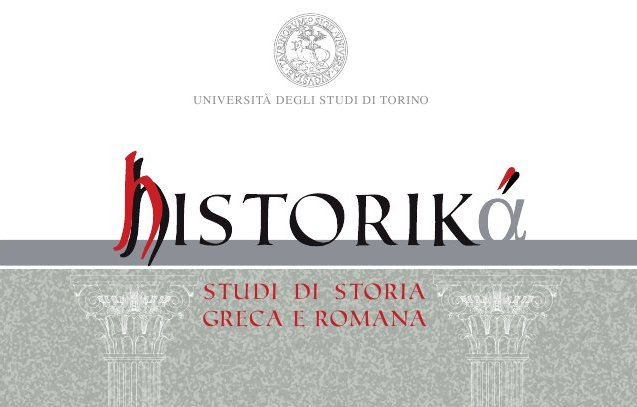“Inclinatio inchoavit” Decadenza e fine dell’impero romano d’Occidente nella storiografia umanistica: Leonardo Bruni e Biondo Flavio
DOI:
https://doi.org/10.13135/2039-4985/1780Abstract
Oltre a documentare un notevole interesse per l’antica Roma e le sue istituzioni, la storiografia del XV secolo concede spazio significativo al tema del declino dell’impero romano d’Occidente. In tal senso, meritano attenzione alcune sezioni della Laudatio Florentinae urbis e delle Historiae Florentini populi di Leonardo Bruni e delle Decades di Biondo Flavio. A differenza delle opere di Bruni dove si identifica la causa prima del declino di Roma nell’aver ripudiato il modello repubblicano e l’esercizio della libertà che ne aveva incarnato le fondamenta, gli scritti di Biondo rivelano l’attitudine a far luce in modo più articolato sul processo che condusse alla fine della potenza imperiale dell’antica Roma, senza cercare una spiegazione univoca. Nel complesso, al di là di alcune posizioni parallele esistenti fra i due autori, inerenti fra l’altro alla valutazione positiva del regno di Teodosio e all’idea che grazie al declino di Roma si crearono le condizioni perché più tardi potessero fiorire in modo autonomo altri centri della penisola italica, le osservazioni di Biondo rivelano più specificamente un approccio storiografico di longue durée e la tendenza a percepire la Tarda Antichità come una fase di transizione importante, nonché a sottolineare la rilevanza di alcuni episodi storici cruciali che la caratterizzarono.
Besides showing a strong interest in ancient Rome and its institutions, 15th century historiography gives a special place to the theme of the Western Roman Empire’s decline. In this light, some sections of the Laudatio Florentinae urbis and the Historiae Florentini populi by Leonardo Bruni as well as of the Decades by Biondo Flavio deserve mention. Unlike Bruni’s works, where the first cause of Rome’s decline was identified in the rejection of the republican model and the exercise of freedom that had embodied its foundations, Biondo’s treatises reveal the inclination to focus from a more structured perspective on the process which led to the end of ancient Rome’s Empire, without looking for a univocal cause. In general, beyond some parallel points of view between the two authors, such as, among others, a positive evaluation of Theodosius’ reign and the idea that, thanks to Rome’s decline, the conditions that allowed other cities in the Italian peninsula to later increase autonomously were created, Biondo’s considerations more particularly show a longue durée historiographical approach and the tendency to perceive Late Antiquity as an important transition phase as well as to remark the meaningfulness of some crucial historical episodes which characterized it.
Downloads
Published
Issue
Section
License
The authors who publish in this magazine accept the following conditions:
a) The authors retain the rights to their work and assign the right of first publication of the work to the magazine, simultaneously licensed under a Creative Commons License - Attribution that allows others to share the work indicating intellectual authorship and the first publication in this magazine.
b) Authors may adhere to other non-exclusive license agreements for the distribution of the version of the published work (e.g. deposit it in an institutional archive or publish it in a monograph), provided that the first publication has taken place in this magazine.


 The journal has been approved for inclusion in DOAJ. The DOAJ listing of the journal is available at
The journal has been approved for inclusion in DOAJ. The DOAJ listing of the journal is available at 
